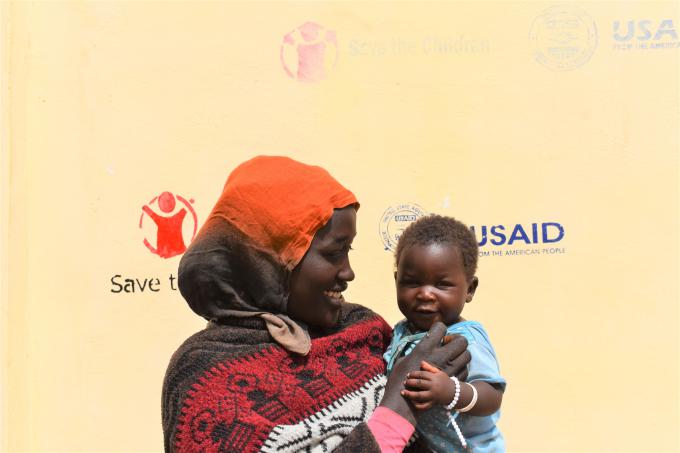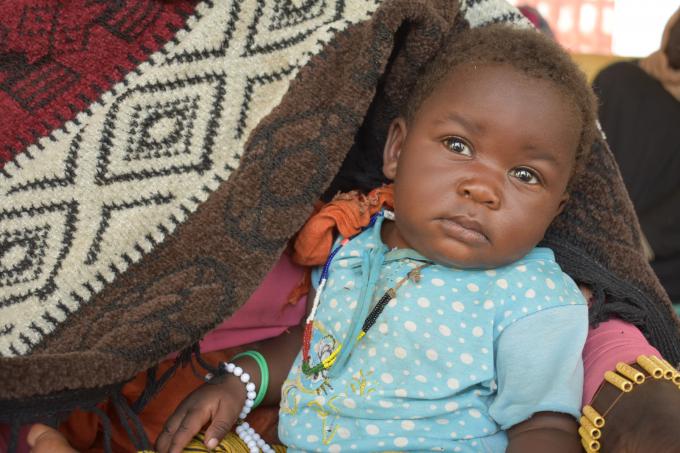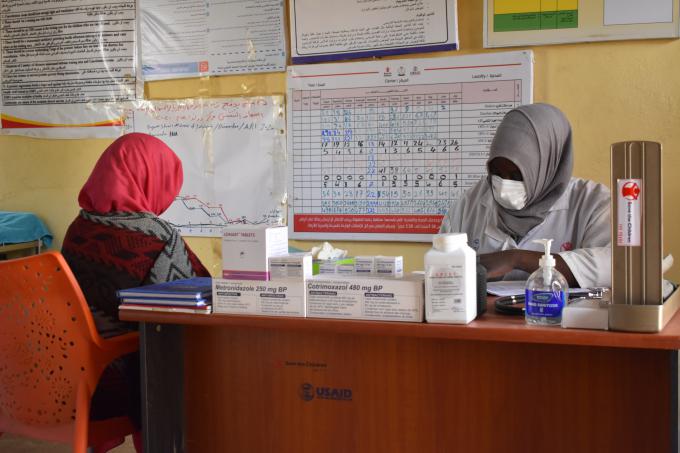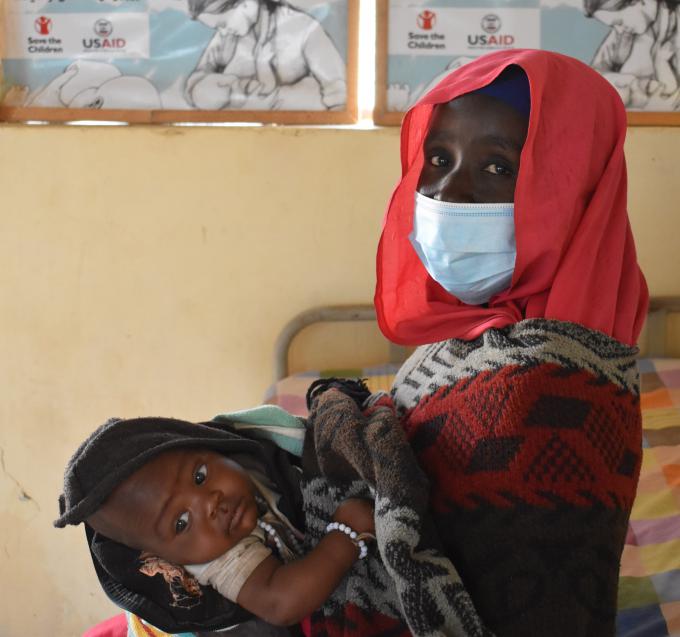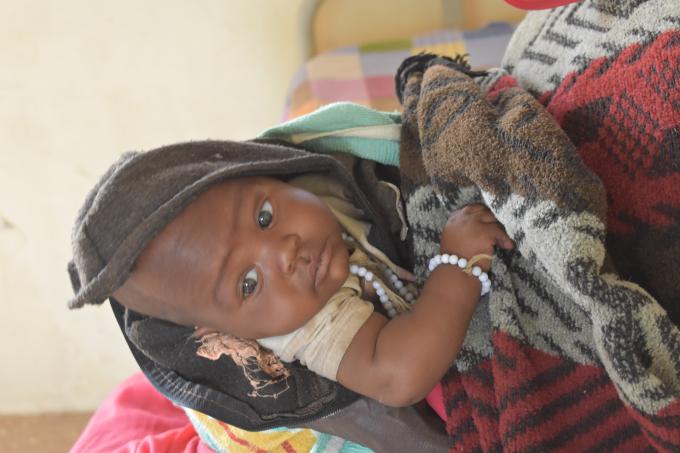IDP Mothers in Tawila’s Health Facilities: Treating their Children, Serving Their Communities and Aspiring for Better Futures
With being an Internally Displaced Person, comes a set of struggles in receiving basic needs in everyday life. Being an IDP mother of children – especially those Under 5, who are more prone to illnesses – who has access to healthcare can help overcome health problems and prevent many from happening in the first place.
In North Darfur, Tawila’s Rwanda A IDP Camp, we talked to two mothers who are benefiting from the health facility, funded by USAID’s Bureau of Humanitarian Assistance and supported by Save the Children in Sudan – and we learn about how it helps their children survive common illnesses, how it inspires them to provide better futures for their children and how it allows them to support other mothers living under similar conditions.
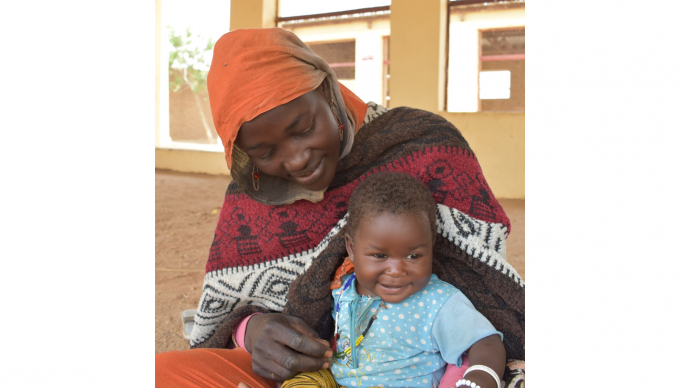
Mona*, 30, a mother of five children, was receiving treatment for her daughter Medina*, who is 5-months-old. Like many children, Medina is suffering from the seasonal cold.
As she held her daughter’s medication after meeting the medical assistant, she told us her story of moving from Tarni, North Darfur during the conflict to ZamZam IDP camp in 2009. There, she was married and had her first child, Maha*, 12, before she moved to Tawila and Rwanda A Camp, and giving birth to the rest of her children.
She learned about the health facility from her next-door neighbor, Amani* (triage personnel), and comes regularly for several services. During her last pregnancy, she was following up with the midwife at the facility, and she had a smooth delivery at home with the assistance of trained community midwives, and she currently attends mother-to-mother support groups. Moreover, she has brought in one of her children, Ahmed*, 6, who was treated in the past for malnutrition, to monitor his status because she is afraid of him relapsing again.
“I love it and love everyone here,” she exclaimed. “It’s close, it’s good for us, it’s open and accessible. I come whenever my children, or I, are not feeling well. And here, they teach you. Learning is important. When someone teaches you something, and you apply it, it’s better for you. Then, you take what you know and pass it on to someone else who will benefit from this information – that’s really good.”
Mona, is trained in first aid and has served as a volunteer in the community, she is currently not working, but emphasizes that she aspires to work one day to support her children – some of which currently attend school – to have better lives. She believes that mothers are who children rely on the most.
“I want to find a job, because every little thing, children will come to you – when they are in school or when they are younger. Mothers are the ones who have to make it. Whenever you
can provide for your children – they’re happy and comfortable,” she asserts. “If they eat well, they live well.”
Then we met Hawa*, 32, who is a mother of three children – 9, 6, and 3-months-old – she is one of the staff at the health facility. Although the health facility is her workplace, she was there for another reason: waiting to see the medical assistant because her 3-month-old son, Moumen*, had a seasonal cold. She relayed what her son is feeling and his specific symptoms, and immediately received the required medication for him.
Hawa, who is originally from Teena, west of Tawila locality, and left her hometown back in 2009. Already a secondary school diploma holder at the time, she was trained by a non-profit organization as a volunteer in first aid and vaccinations.
Today, she is a trained community health worker in nutrition, where she is responsible mostly for measuring Mid-Upper Arm Circumference (MUAC). “I have been working in nutrition since 2013, and here since 2019,” she informed us.
Aside from MUAC measurements, her work also entails health education, reporting on children who need to be admitted to the nutrition program, following up with mothers on the cases of their children, and conducting mother-to-mother nutrition awareness sessions.
“We were chosen by the Native Administration to provide services for our communities,” she stated. “We were then taught and trained more, and today, we are happy to be working and giving those who need us the most in the community.”
Supported by USAID’s BHA, Save the Children in addressing the needs of IDPs and host communities in North, Central Darfur and South Kordofan. We are providing Health, Nutrition, WASH, and Food Security and Livelihood services to 259,172 IDPs.
 Sudan
Sudan 